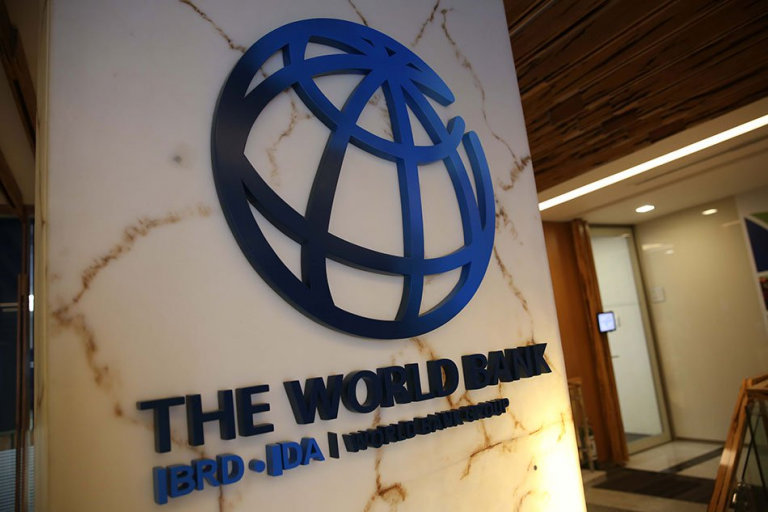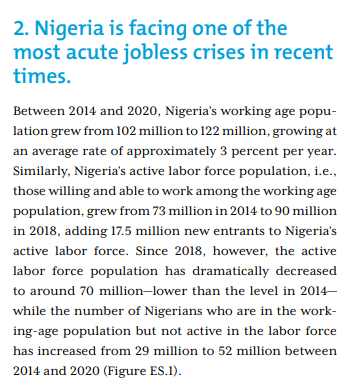
About 50% of Nigerians are open to leave Nigeria due to the high unemployment rate and explore a better economic future outside the nation. This number was 20% in 2014. Also, close to 50 percent of Nigerian jobseekers face chronic unemployment of more than 2 years. This is contained in the latest World Bank report – ‘Of Roads Less Travelled: Assessing the Potential for Migration to Provide Overseas Jobs for Nigeria’s Youth.’
This report finds that Nigeria’s labor market has not kept pace with the increasing number of labor force entrants in recent years. Combined with rising aspirations of increasingly educated youth, there are continuing signs of migratory pressure in Nigeria’s economy. The recent rise in irregular migration from Nigeria is one manifestation of this problem. Together with steps taken to curb irregular migration, it is essential for countries such as Nigeria to improve their managed migration systems to enable youth to find overseas employment and to benefit from remittances as well as transfer of skills, technology, and investment. The findings presented in this report stems from a deep engagement with stakeholders in Nigeria and abroad and it is our hope that this exercise will support the Government of Nigeria in filling critical information gaps to aid migration policymaking.

This is a challenging report for the nation. We hope our political leaders will act and fix things. I have put my suggestion on how we can create innovation of the future by fixing access to capital. With problems everywhere, what may be missing is the capacity to combine factors of production to fix them. If we can do the matching, among Knowledge, Capital, and Entrepreneurial Capitalism, the issue of Labour could be fixed.
Register for Tekedia Mini-MBA edition 19 (Feb 9 – May 2, 2026): big discounts for early bird.
Tekedia AI in Business Masterclass opens registrations.
Join Tekedia Capital Syndicate and co-invest in great global startups.
Register for Tekedia AI Lab: From Technical Design to Deployment (next edition begins Jan 24 2026).
---
Connect via my
LinkedIn |
Facebook |
X |
TikTok |
Instagram |
YouTube


To some, it looks like a hopeless situation. But it’s something that can be addressed, only that it’s still not clear what our common national aspiration is. What is the Nigerian Dream? It starts there.
Something as simple as electronic transmission of votes, not even electronic voting, yet we managed to scuttle the idea, by bringing our dishonest and mundane politics into it. If we struggle to engender confidence in the simplest of things, how do we rally the people for more difficult national assignments? We are disappointing a generation.
When the third term debate was raging in 2005, it looked like the supporters could have their way, but Ken Nnamani’s Senate pulled a fast one, and the people won. Why can’t this current Senate do something most Nigerians will obviously support? Electronic transmission is the simplest of things demanded of them, it’s not everything we need to draw circles about.
Remote working has gained much weight in recent times, rather than wholesale migration, can we have a national framework covering skills development and job matching, so that the nation can benefit immensely from there? Trade is not only import and export of goods, can we export skills strategically?
Plenty things to look at.